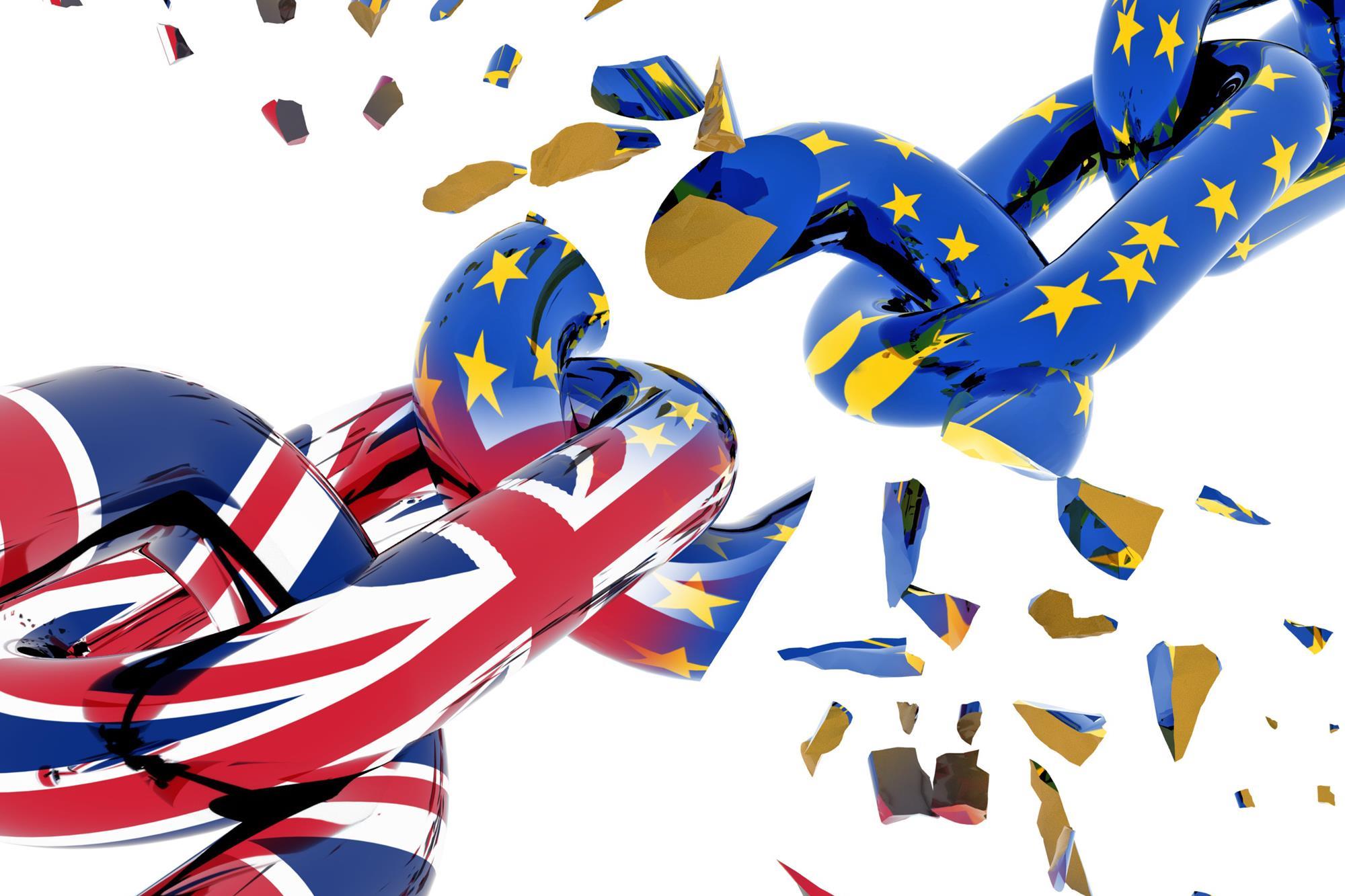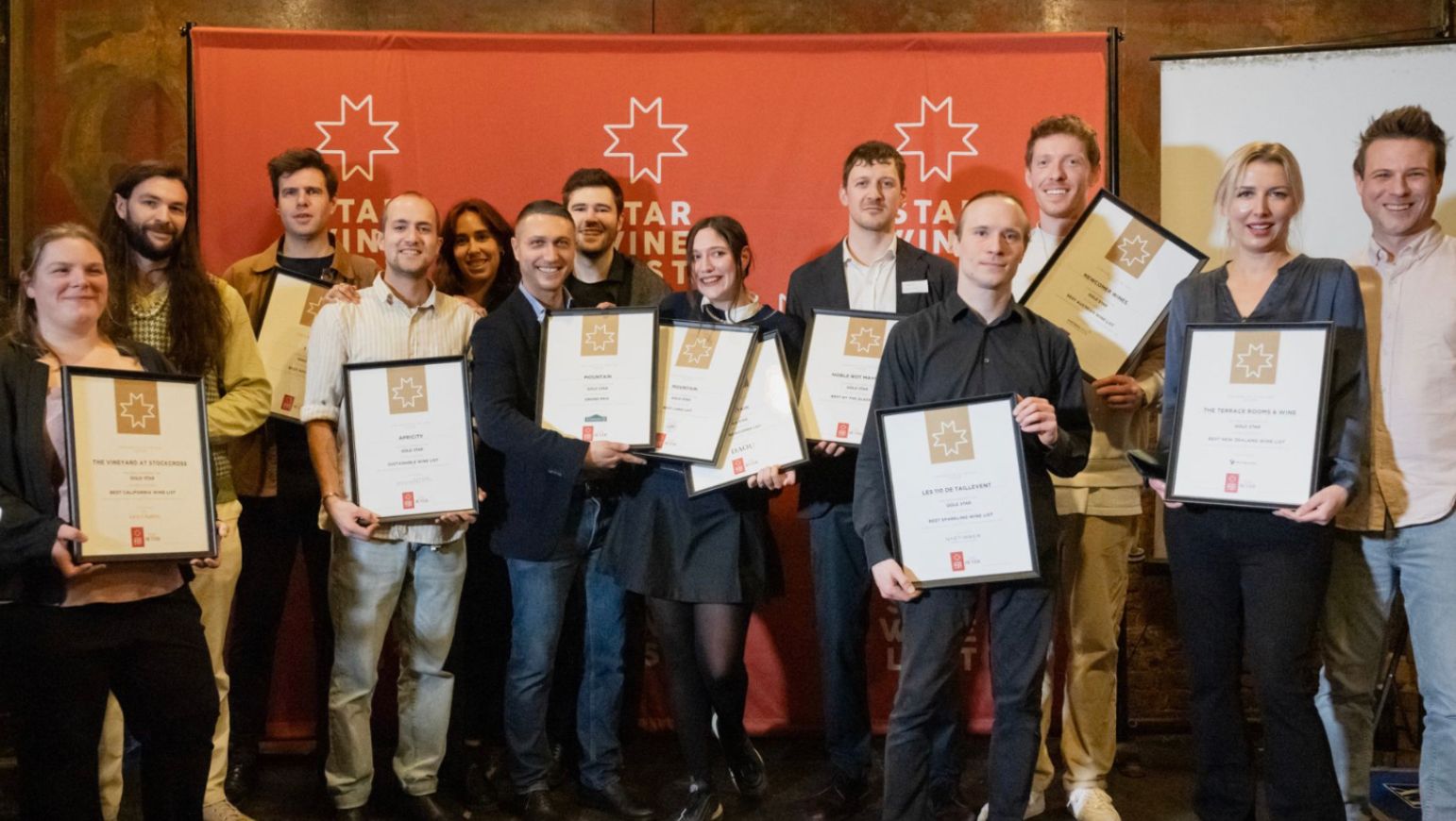The government is going to have to go a long way to convince leading voices in the UK wine industry that Brexit can only be good news for business. As it stands it’s anything but and could be fatal for wine companies already reeling from the impact of Covid-19.
If you skipped over the latest Brexit news this morning munching on your corn flakes then you might want to stop what you are doing and read this. However you may have voted in the referendum, if you buy and sell wine from the EU you may not be doing so for very much longer if the UK government does not change the trading procedures it plans to introduce at the end of the year. Deal or no deal.
The dire consequences of what could be ahead for the UK wine industry – with a particular focus on fine wine – was laid out in startling – if not frightening – detail in a joint webinar held this week by the Wine & Spirit Trade Association and Liv-ex, the global marketplace for wine.
Put simply if we leave with the proposed trading arrangements in place it will be a “disaster” for the industry and fine wine sector in particular, said Michael Saunders, chairman of the WSTA and chief executive of Bibendum.
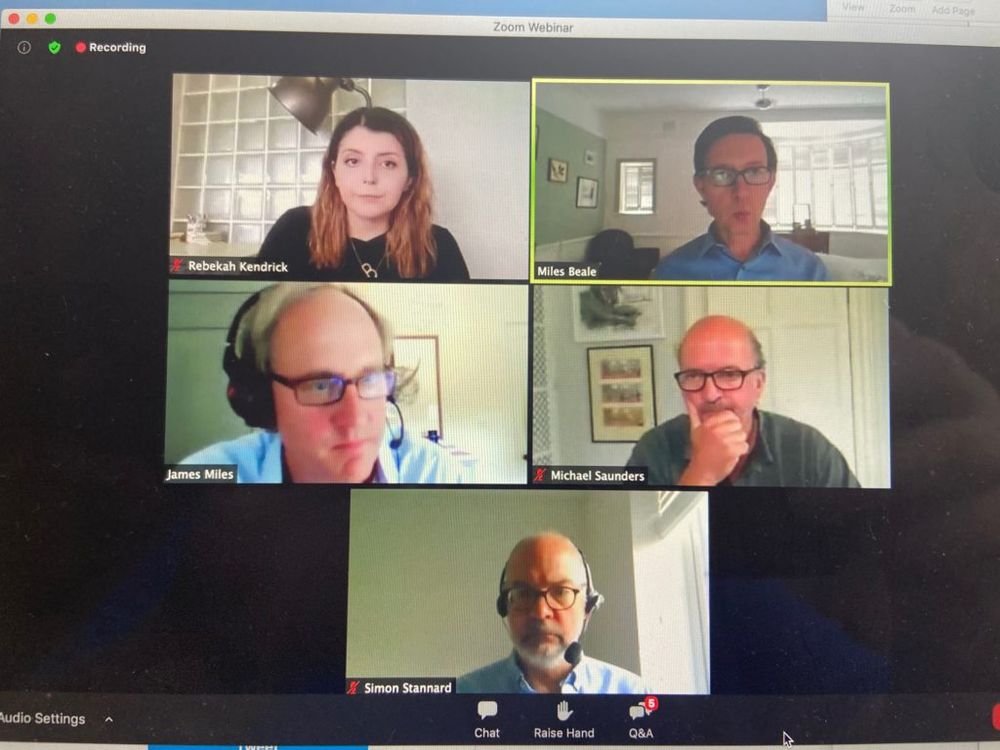
This week’s WSTA and Liv-ex webinar panel in full discussion
Massive threat to business
The reasons are deep, complex, and worrying. But in a nutshell if the government does not agree to change and free up the complexity in how the wine industry will be expected to trade without a EU deal it could result in a massive loss in business, and some trade drying up completely due to the red tape and costs involved.
Most of which centres around the forced introduction of the infamous VI-1 form that the WSTA has already said will cost the UK wine industry at least £70m in extra costs.
It is particularly damning for the fine wine sector, stressed James Miles, co-founder of Liv-ex, in that it requires a laboratory test confirming the liquid in every batch of wine, no matter how small, coming to and from the EU. Miles said he found the introduction of such a form for wine as totally “unacceptable” as it is not being used for any other alcoholic product.
A test, he added, would be impossible to do with fine wine – who is going to open up a bottle of Petrus to prove what it is? It’s also totally impractical considering how many times fine wine passes through so multiples hands, right across the world, and in the secondary market where it is not possible to know who the original producer might be – or even if they still exist.
Miles estimates that Liv-ex would have to produce a minimum 65,000VI-1 forms a year. That’s just not going to happen, he said.
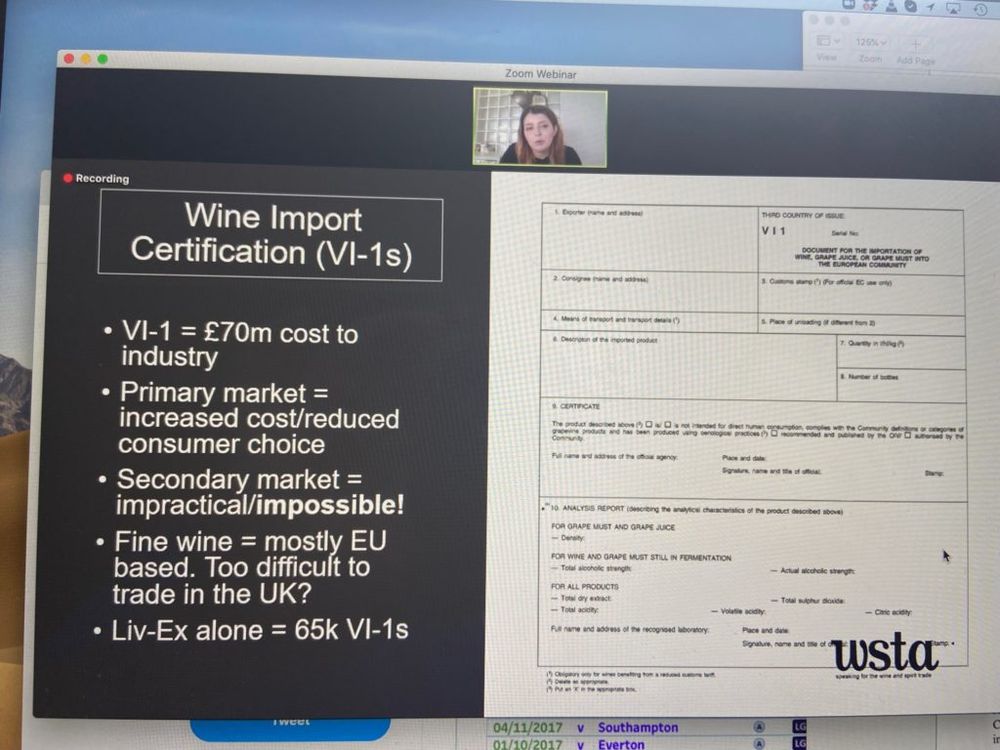
Read it and weep: the dreaded VI-1 form that major EU producer like Cramele Recas have said could make trading with the UK unviable from January 2021 if it is not changed
As each test could cost up to £330 each to carry outit will also make EU wine producers question whether it is viable to even trade with the UK, a market that is already notorious for its low margins and massive competition.
Romania’s biggest wine producer and exporter, Cramele Recas, founder, Philip Cox, has been particularly vocal on the issue, writing on The Buyer earlier in the year about just how dangerous the proposed new trading measures would have on a producer of its size working in the UK. You can read his “Brexit nightmare” article here. Yes, this week’s webinar was specifically about fine wine, but the issue is a disaster for both the UK wine industry and the EU producers who trade with it, stressed Cox.
“Total bonkers”
Miles did not mince his words during this week’s webinar when he declared the government’s position as “total bonkers” and incomprehensible. It is, he added, actively going out of its way to potentially force what are currently world leading wine merchants and traders out of business.
“These rules are not taking back control, but shooting ourselves in our foot. They are not being forced on us by the EU. They are being forced on us by our own government. It’s completely bonkers,” he said.
If the trading conditions go ahead then the WSTA said the UK fine wine market could be in “peril”. A sector that is responsible for a third of what is a £5bn global market.
“If we get the wrong outcome on January 1 it will be disastrous for fine wine,” claimed Saunders.
Rather than looking to effectively cripple the UK fine wine market this is actually a “once in a lifetime” opportunity, added Miles, to help it become even stronger as a global fine wine hub. Or in his words “do a Hong Kong” in recognition of how it has become such a vital hub in global fine wine over the last 10 years.

The UK risks falling way behind Hong Kong as the world’s leading hub for fine wine trading, warns Jame Miles at Liv-ex
Currently £170m of the £650m that the UK exports in fine wine every year goes to Hong Kong. That sum could either be destroyed or enhanced depending on how the government exits the UK.
“This is all achievable with the right political will,” added Miles. “It’s all in the gift of this government.”
“We need to focus on the opportunity here,” stressed Miles. “We want to make trading as easy as possible.”
The big worry for the UK wine industry is that the government is currently not listening to its fears, said the WSTA’s chief executive, Miles Beale. “We’re being completely over looked.”
Clearly Covid-19 has meant face to face meetings have not been possible, and the WSTA is doing all it can to make them possible.
Beale, though, is quietly confident that if can have “an all resolving conversation” providing it can get in to make the right representations to the right ministers – but it is all “ifs” at the moment. If it can’t then he conceded the “fine wine industry is going to be in trouble and I don’t exaggerate that”.
For fine wine we can also read the mainstream wine market. For whilst this particular webinar
Time to get political
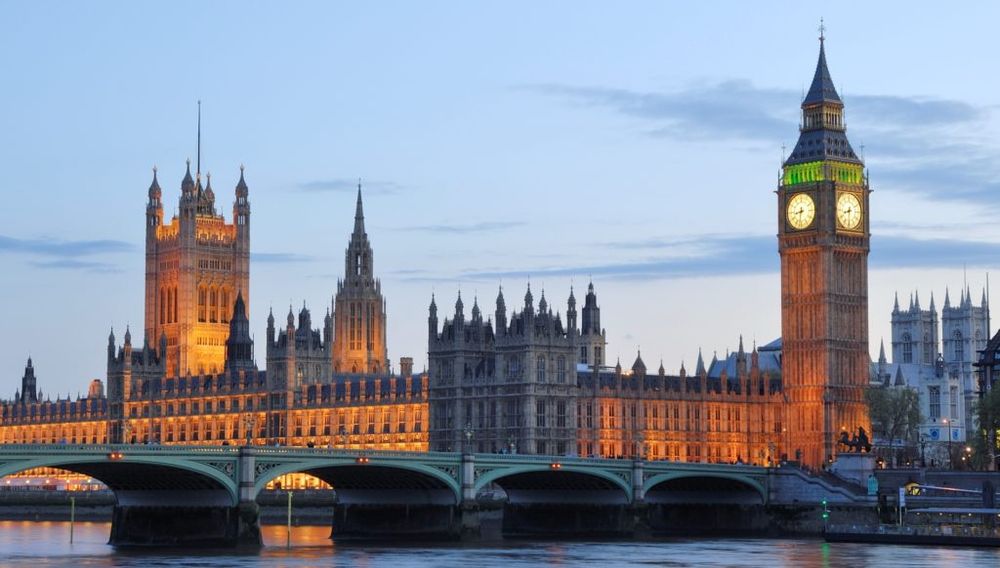
The UK wine industry needs to come together urgently and lobby collectively ministers and local MPs urges the WSTA and James Miles Liv-ex
Liv-ex’s Miles said everyone in the UK wine industry needs to wake up to the seriousness of the situation and “get political” and personally lobby local MPs and the relevant ministers with the facts and figures to make its case. If we don’t then we will only have ourselves to blame if the government does not act.
The wine trade would do well to send Miles out on to the nation’s airwaves and major news TV shows such was his impassioned case for how strong, effective and proud the country should be of its fine wine sector – and the overwhelming damage the government is currently willing to do to it.
He said wine is sixth largest food and drink export the UK makes and whilst we might export £20m of English wine, as a trading hub it is responsible for exporting £600m of “other people’s wines”.
“Liv-ex sells more wine to the French that we buy from them,” he said. The UK is a “leading hub for wine trading” as it has had 100s of years of practice doing so, with the best and most trading practices anywhere in the world, based on relationships with global wine producers going back multiple generations.
The government threatens to wreck this “best in class” sector – be it amongst merchants, shippers, importers, retailers, restaurants through to critics, journalists and education – with its current policies.“We are not world famous for our wines, but we are world class at wine ‘merchanting’,” he claimed.
Template letter to your MP
To help the WSTA has pulled together a templated letter for anyone in the trade to download and send to their MP. Click here to download.
It has tailored one just for fine wine merchants that explains the issues around fine wine specifically. You can download that link here.
In the letters the WSTA also sets out the steps and measures it would like the government to do in the coming months in order to help the drinks and wine industry trade effectively post-Brexit.
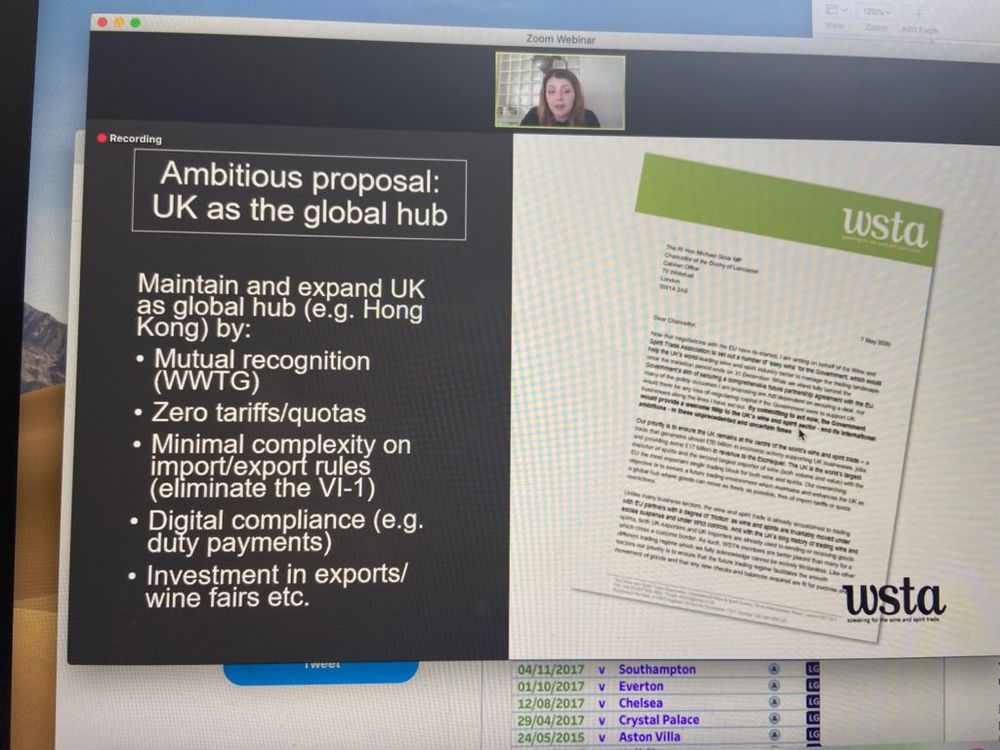
The measures the WSTA would like to see the government introduce
It calls for:
- The UK should join the World Wine Trade Group as soon as possible to help better co-ordinate global trading practices.
- Zero tariffs should be applied, to reduce complexity around trading wine.
- The UK government should seek to minimise complexity in import/export requirements, including the abolition of VI-1 import certification for wine.
- Greater digital compliance, for example online duty payments.
- The UK Government should commit to greater promotion of our world-leading wine industry.
Instead the current practices, as they stand, are almost the complete opposite and only make whatare comparatively complex trading arrangements with the EU at least three times worse, said the WSTA.
Other issues the WSTA flagged as being potential minefields for the wine and drinks industry included:
- The probable loss of using the EU-wide duty and tax EMCS system and a move to CHIEF – the new CDS system which the WSTA says is not likely to be ready for Day 1 of Brexit. “There is a risk that EU producers look at the UK market and simply say ‘why bother?’” says the WSTA.
- The issue of labelling and the need for all wine sold in the UK to have a label saying so – another potential cost of 20p a bottle. There would also be no 21 month grace period to do so.
- The UK Global Tariff (UKGT) has been published which the WSTA says “is hugely bureaucratic, and there are around 200 lines for wine alone”.
- The results of a possible new global tariff that could add more bureaucracy.
- The government’s alcohol taxation review that is going ahead this summer, and whether that is seen as an opportunity to lean even more on the drinks industry to help fill some of the Treasury’s much depleted coffers.
- The Deposit Return Scheme which could add 20% to a bottle for recycling that is due to go live in Scotland first in July 2022 and potentially the rest of the country later. The WSTA is hoping to at least get glass bottles excluded from the scheme.
- If you would like to read more about the potential problems that lie ahead then go to the WSTA website here.
- The WSTA’s Simon Stannard has outlined the WSTA’s concerns over VI-1 forms and Brexit plans in a blog post here.
- If you would like to watch the WSTA and Liv-ex webinar you can do so here: https://bit.ly/PostBrexitFineWineTrading_video Password: finewine20v.
- James Miles has written a blog on his assessment from yesterday’s webinar and his wider thoughts here.
